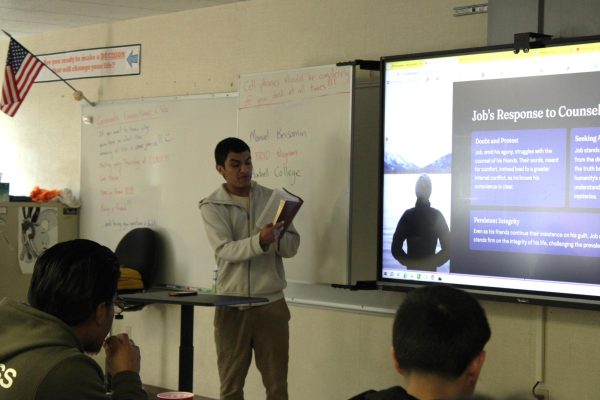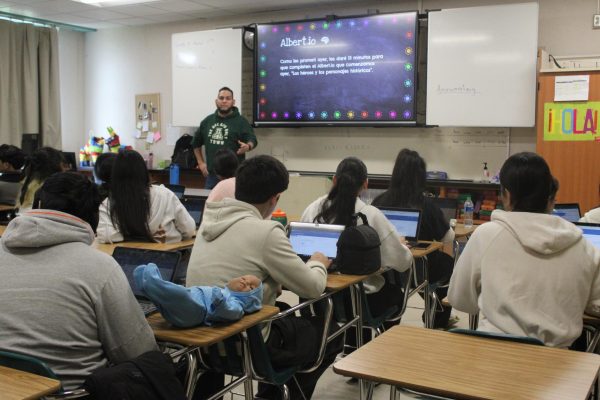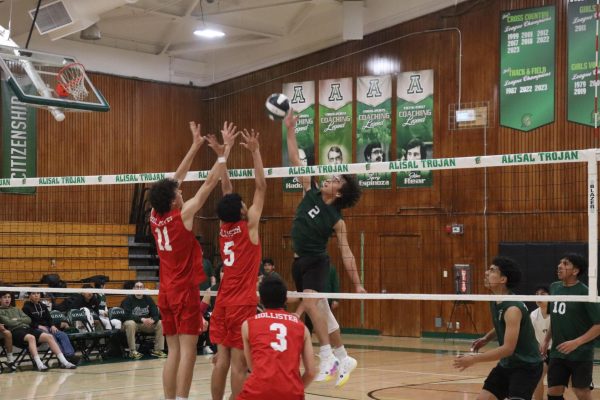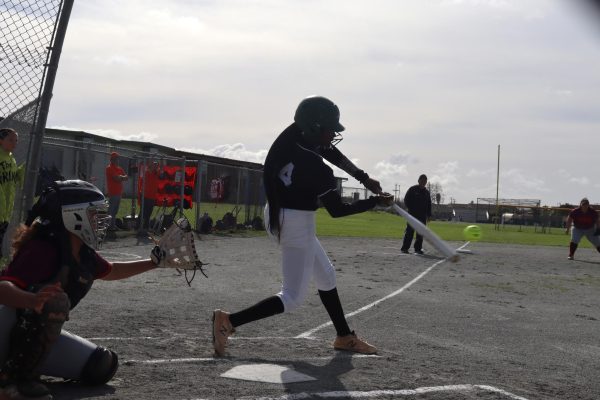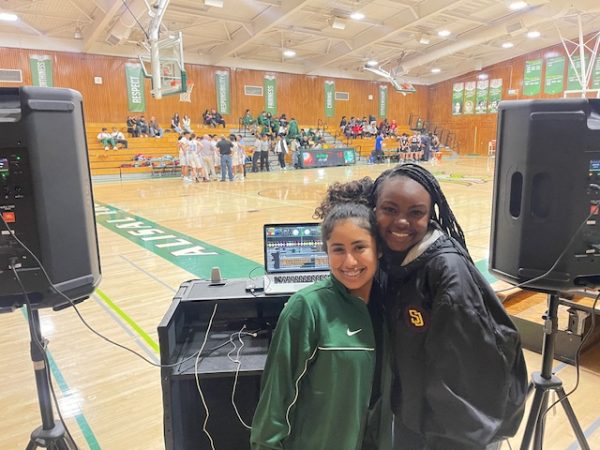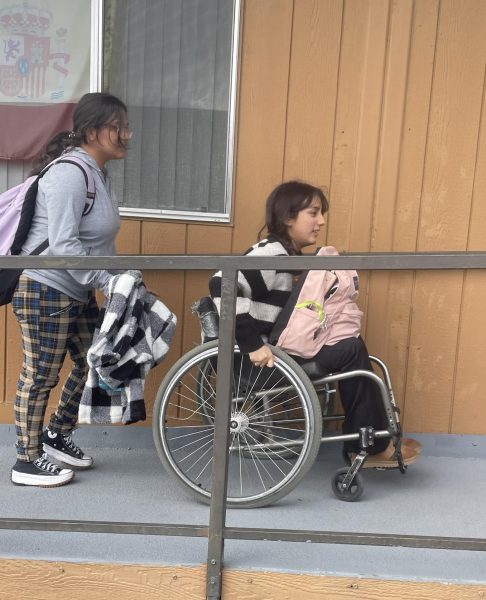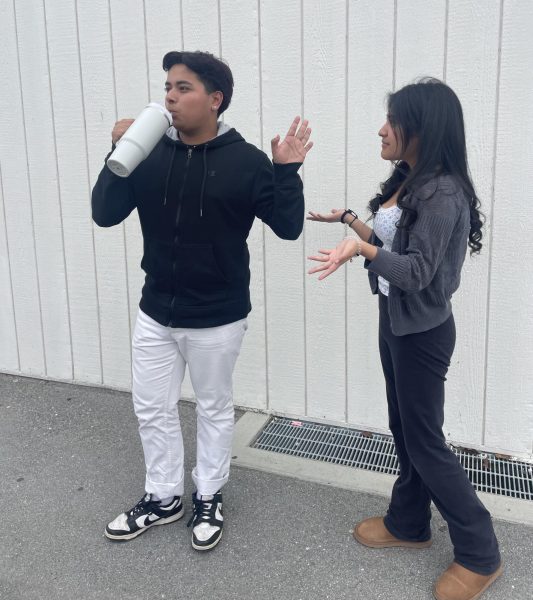Antonio Brown is the epitome of how not to act
Antonio Brown and Larry Fitzgerald meet after their teams met this preseason. Fitzgerald embodies professionalism through his actions both on and off the field; Brown doesn’t.
All over the world professional athletes are great role models for many people. The way they carry themselves, both on (but especially) off the playing field, is crucial as many young people look up to them. As a sports fan, I believe athletes should be respectful, well behaved, and professional.
However, that hasn’t been the case with wide receiver Antonio Brown. Brown has proven he doesn’t understand the word “professional”.
As the 2018-2019 NFL season came to an end, the Pittsburgh Steelers traded star receiver Antonio Brown to the Oakland Raiders. Brown’s three-year deal included 50 million, with a 1 million signing bonus and $29.125 million guaranteed.
The way Brown carried himself over the six months with the Oakland Raiders was a prime example of what not to do.
Brown was under contract to play football, yet he missed training camp because he had frostbite on his feet due to cryotherapy. When he could practice, he didn’t because he was fighting to wear a 10-year-old helmet that didn’t mean the league’s safety standards.
In August, Brown left Napa because he didn’t get his preferred helmet. He was fined $40,000 and a separate $13,950 for failing to practice with the Raiders. He then went onto Instagram to post a letter that was sent to him by Oakland.
To make matters worse, Brown got into a heated argument with Raiders general manager Mike Mayock. He threatened to punch Mayock in the face, but the argument did not get physical.
On September 7, the Oakland Raiders fined Brown more than $215,000 for conduct detrimental to the team. Oakland then voided the $29.125 million worth of guaranteed money. Brown then took it to Instagram to ask for his release, which the Raiders granted.
Hours after his release from Oakland, Brown signed with the New England Patriots. Quickly after his signing, Brown found himself in more trouble. His old personal trainer, Britney Taylor, filed a lawsuit against Brown, accusing him of sexual assault. According to Taylor, Brown sexually assaulted her three times with the third ending with him raping her.
After playing one game, he was released by New England. Brown later said he won’t be playing in the NFL anymore.
As a professional, none of this was acceptable The Oakland Raiders, especially Coach Jon Gruden, were supporting him. Brown should’ve been a good teammate and showed up for training camp, as he was being paid to do, both for moral support and to help the receivers.
None of this happens, (with the exception of the sexual assault charges) if Brown had acted professionally and showed up for work and been a good teammate, even if he couldn’t perform.
A prime example of how to act professionally is Arizona Cardinals wide receiver Larry Fitzgerald. At times it looked as if he could’ve left, but he’s called Arizona his home since being drafted in 2004. His name rarely comes up in the media. Other players in the league have even praised Fitzgerald.
Doug Baldwin, formerly of the Seattle Seahawks, has shown admiration for Fitzgerald. Baldwin said, “Larry is the epitome of what a professional human being looks like” and “This world that we live in is very tough to navigate at times and he has done a marvelous job at it.”
In the 2015-2016 NFL season, Fitzgerald was named the Walter Payton NFL Man of the Year for his notable community contributions. Fitzgerald’s foundation, The Larry Fitzgerald First Down Fund, promotes reading aid and technology for children K-12.
A true professional will maintain that level of professionalism throughout his or her life. A professional is well educated in their field. Whatever may happen they should know the differences between right and wrong. At the end of the day being professional is a key element to success. Fitzgerald knows what he needs to do both on and off the field, Brown doesn’t have a clue.
Your donation will support the student journalists of Alisal High School. Your contribution will allow us to purchase equipment and cover our annual website hosting costs.




